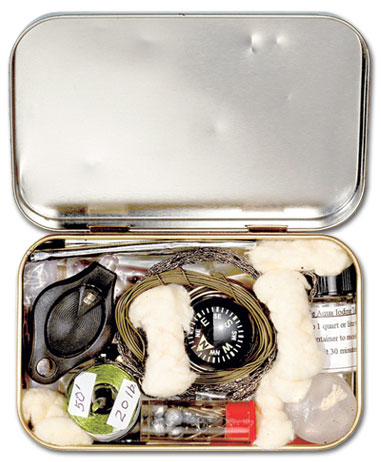Author (#1)September 2006 Archives
Pew Internet & American Life Project: More Americans turn to the internet for news about politics -- On a typical day in August, 26 million Americans were using the internet for news or information about politics and the upcoming mid-term elections.
NY Times: The Ascent of Wind Power -- Wind power is emerging as an alternative in fast-growing countries like India and China that are avidly seeking new energy sources.
Chicago Tribune: For retirees, health-care cost increases add to pains of aging -- Geraldine Picha knew that her pension would be modest, given her tenure of 15 years at the phone company. What the Chicago-area resident did not expect was that her retiree health premium would eat up every penny of that pension--and more.
NY Times: Arbiter of Style and Grammar Goes Online -- The Chicago Manual of Style will be available online by subscription, freeing users to consult it on the fly.
Wired News: It Is 'One Small Step for a Man' -- An Aussie computer programmer downloads Neil Armstrong's historic "one small step for man" declaration from his 1969 moonwalk. Sound-editing software shows Armstrong got it right in the transmission from the moon.
Wired News:Peek at NSA's Secret Reading List -- What's the typical U.S. spook reading up on? From encryption to extraterrestrials, recently divulged documents offer a glimpse between the covers of the National Security Agency's classified internal magazines.
Journalism.co.uk -- How to: avoid back pain while at the computer and How to: Set up and run a successful blog
Field & Stream: Make a Survival Kit out of an Altoids Tin (and Two More Life-Saving DIY Projects)

Also: Try Field & Stream's survival skill quiz.
NY Times: Click Fraud Is Growing on the Web -- Pay-per-click advertising fraud is becoming more pervasive as spurious clicks can be generated through automated programs.
USA Today: Teens turn to TV, Internet for news -- Half of all high school students get news online at least once aweek, but teens rate TV the easiest-to-use news source - and the most accurate, says a study out Friday.
Lost Remote: Gamers are a targeted marketing gold mine -- Roughly 17 percent of the adult population are console gamers. They consider themselves trendsetters and consume an above-average amount of media according to a new study by Universal-McCann. They are also acceptingof product placement in moves and television. The study said that the media consumption habits of console gamers, combined with their feelings toward advertising, make them a good target for marketers.
Christian Science Monitor: Eons: 'MySpace' for the boomer set -- Seniors are logging on to Eons.com and discovering the world of online networking. Add to that Facebook opening itself to anyone. Will there be anyplace on the internet that teens can hang out? See: Knowledge@Wharton -- Losing Their Cool: The Downside of Expanding Hot Social Networking Sites -- The problem: The move could be risky if it blurs the company's focus and dilutes its brand.
Washington Post: If Only We Knew Then What We Know Now About Windows XP-- If Microsoft had known it would be living with XP for so long, itshould have pushed back its release to fix some of those problems.
Butcould it have known how bad things would get? Could anyone? The reviewof XP that ran under this byline five years ago never even used theword "security."
Lifehacker: Seventeen things every freelancer should know -- Veteranfreelance illustrator Megan Jeffrey lists 17 things she's learned overthe 17 years she's been self-employed.Journalism.co.uk: How to: avoid back pain while at the computer
USA Today:Blogs put businesses on Web search map -- Huntingfor ways to boost revenue, a growing number of small businesses areadding another weapon to their marketing arsenal. Good one to check out: Lincoln Sign Co. -- Signs never sleep blog.
Pew Internet & American Life Project: Bloggers: A portrait of the internet's new storytellers -- A national phone survey of bloggers finds that most are focused on describing their personal experiences to a relatively small audience of readers and that only a small proportion focus their coverage on politics, media, government, or technology. Blogs, the survey finds, are as individual as the people who keep them. However, most bloggers are primarily interested in creative, personal expression – documenting individual experiences, sharing practical knowledge, or just keeping in touch with friends and family.